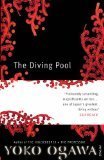What do you think?
Rate this book


177 pages, Kindle Edition
First published January 1, 1988
It occurred to me that almost everything in the store was edible, and this seemed a bit sinister. There was something disturbing about so many people converging on this one spot in search of food.